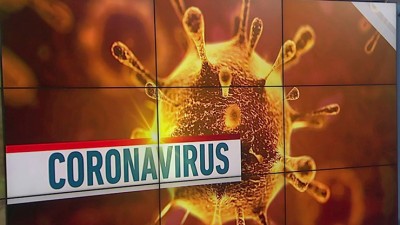
Public health officials all over the world are desperately trying to cope with the spread of coronavirus. There is a growing fear that the global pandemic might be impossible to subside. The terrible respiratory sickness, labeled COVID-19 – COronaVIrus Disease 2019 – has afflicted upwards of 75,000 globally and took the lives of well over 2,000 in 24 countries. This virus is different from the common coronavirus that may cause a cold. This strain was discovered to have probable origins from a bat, where humans never had the chance to develop immunity. Now the virus is no longer spreading via wild animal, rather person-to-person, and remains active on contact surfaces for two days and up to a week in carpet. It differs from the recent measles outbreak as that was a highly contagious virus and this seemingly is spread only in communal areas. An actively sick individual can protect others by remaining in isolation.
Could there be a reference to the fast-spreading coronavirus in the Torah? The numerical value of the Hebrew characters that spell Corona is 367 as is that of the phrase “achal eiver min ha’chai.” We are taught that eiver min ha’chai refers to one who eats the limbs of a live animal. The outbreak of the dreaded virus has been traced to the Chinese town of Wuhan, Hubei Province, where countless vendors are recognized for selling “carcasses and live specimens of dozens of wild animals – from bamboo rats to ostriches, baby crocodiles, and hedgehogs, according to The Wall Street Journal. The sale of wild animals was described by The New York Times as the “perfect incubator for moving pathogens.”
In a remarkable show of concern, President Donald Trump lived good on his promise to donate his salary and sent his fourth quarter earnings of $100,000 to the Office of the Assistant Secretary for Health as a small way “to support efforts being undertaken to confront, contain, and combat” coronavirus, according to a release by his press secretary’s office.
Today there is no cure, but labs around the US and Israel are quickly working to release a vaccine. To date, the only remedy is to quarantine. On Tuesday, March 3, this option was exercised close to home as the Young Israel of New Rochelle was forced to cease services and have its members who attended Shabbos services on February 22, and a funeral and bas mitzvah on February 23 at the shul, seclude themselves until Sunday, March 8, at the earliest, as an attorney who davens there came down with symptoms of COVID-19. Reports then surfaced of students at Yeshiva University, the Modern Orthodox educational center, entering self-seclusion as a precaution to possible exposure to the virus following interaction with a son of the afflicted. “We are trying to be cautious and not walk around as much,” said one student asked about the fear on campus. Other students expressed outrage that classes remained in session while they were left to wander about in fear and confusion without much direction.
Then, Yeshiva Bais Hillel of Passaic canceled Parent-Teacher Conferences as a potential exposure of a staff member was uncovered. The Yeshiva alerted parents: “Our students and staff are not at risk… We are following the recommendation to conduct a thorough cleaning of our building.”
El Al is one airline close to home that has since laid off 1,000 workers and stopped many flights from taking off due to a lack of interest in service to destination far from the Chinese source of the epidemic.
The concept of quarantine was most discussed in the Torah when one smitten with tzaraas, caused by speaking evil on another, would be forced into isolation to protect the community from further untruths being spread. This is the concept of protecting others, not the diseased. We are advised to wash our hands with soap regularly, use an alcoholic-based hand sanitizer, avoid touching our eyes, nose, and mouth, use tissues when coughing, disinfect surfaces, phones, and doorknobs often, keep toothbrushes separated, change our clothes when coming in from the outdoors, and get a flu shot.
Rabbi Benjamin Blech explains that friendships are said to help reduce stress, help one live longer, and have an easier time recovering from heart attacks. Nonetheless, some companionships are spoiled with lies, insults, and betrayal, while others occupy much of one’s time or steer his or her counterpart along an uncertain path. One must seek out not only satisfactory friends, rather those who are inherently good-natured, as the wrong relationship will destroy you. We must quarantine these misunderstood attachments before they can dish out harm.
By Shabsie Saphirstein
Is Coronavirus Mentioned In The Torah?
Typography
- Smaller Small Medium Big Bigger
- Default Helvetica Segoe Georgia Times
- Reading Mode




